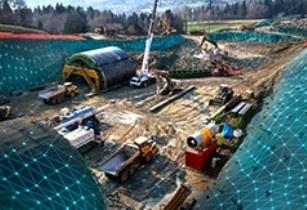Global provider of comprehensive software and digital twins services for advancing the design, construction and operations of infrastructure, Bentley Systems, has announced the availability of OpenGround Cloud
The aim is to enable geotechnical professionals to access reliable geotechnical data for better engineering decision support and to improve collaboration across the entire supply chain.
OpenGround Cloud aims to provide a complete solution for planning, data entry, borehole log production, lab data management, reporting, visualisation etc. The cloud service improves collaboration across multidisciplinary project teams and significantly increases the value of geotechnical data by making it easily accessible to major project stakeholders.
Geotechnical project team dynamics and the applications and services they require to manage natural resources are changing rapidly. Relevant geotechnical data is typically dispersed across various applications and devices and can be cumbersome to gather and consolidate, complicating the effective and timely use of this data. With OpenGround Cloud, geotechnical engineers can readily access reliable, high-quality current and historical geotechnical data for the modeling, simulation, and analysis of infrastructure projects’ ground conditions.
Scott Devoe, senior director, geotechnical information management, Bentley Systems, said, “OpenGround Cloud provides a single enterprise repository of multiple data sources for all ground investigation projects—a long-sought improvement for geotechnical and geological professionals. It eliminates the need to retain copies or to exchange data and ensures that everyone in the supply chain has the correct access rights to the most current version.”
“As a result, OpenGround Cloud helps minimise project delays due to encountering unforeseen ground risks during construction,” Devoe added.
Richard O’Brien, principal process engineer with Atkins, added, “OpenGround Cloud gives us the ability to determine and cross-reference the organisation’s geotechnical parameters and correlations with those available from literature sources. Tender design is made more efficient and we can consider a wider range of site properties leading to reductions in geotechnical risk. Ground investigations are planned more effectively taking into consideration multidiscipline and multiproject data leading to reduced costs. And, detailed designs are delivered from a more complete perspective, which leads to greater value for the client.”
Cedric Allenou, ground engineering lead, Lower Thames Crossing, continued, “In addition, maintaining the link with the database when members of other organisations need to access the data has also improved the workflow due to the servers being cloud-based. As a result, external support teams can more easily solve issues that arise. The process allows rapid responses and minimises potential downtime on the project.”





















